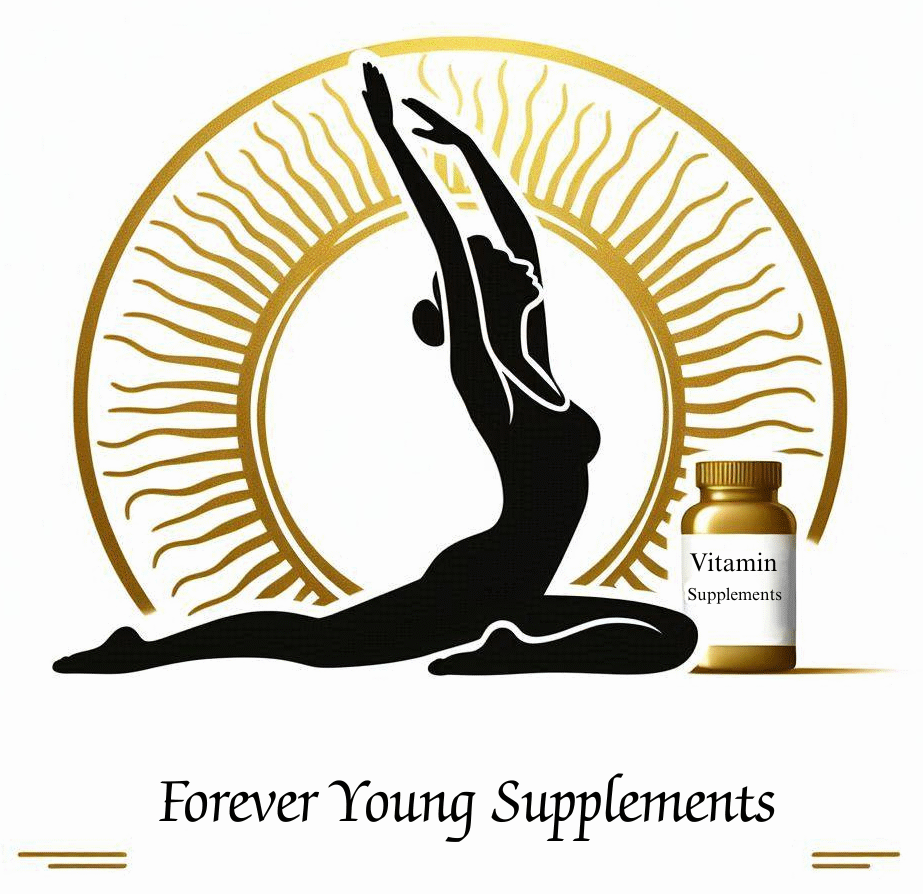Walk through the aisle of any pharmacy or health food store, and you will be faced with a dazzling array of supplements promising everything from sharper memory to stronger bones. This multibillion dollar industry is especially targeted to meet our growing desire to maintain our youthful bodies. Our aging bodies, changing nutritional needs, and fear of diseases make us older adults a key and valuable market. But amidst all the slick packaging and persuasive marketing, one can’t help but wonder do we seniors really need all these supplements? Or are we falling for fiction disguised as health advice?
 There is no denying that seniors face unique nutritional challenges. As we age, our bodies don’t absorb nutrients the way they used to, which might lead to deficiencies. But does that mean supplements are the magic remedy? Not quite. Many folks reach for supplements as an easy fix, but not all of them are needed, nor are they equally effective.
There is no denying that seniors face unique nutritional challenges. As we age, our bodies don’t absorb nutrients the way they used to, which might lead to deficiencies. But does that mean supplements are the magic remedy? Not quite. Many folks reach for supplements as an easy fix, but not all of them are needed, nor are they equally effective.
Marketing wizards have really worked their spell here. With slick advertising campaigns and convincing testimonials, it is often hard to separate what is genuinely helpful from what is hyped. Senior targeted supplements sometimes promise the world, claiming to improve memory, boost energy, or make joints as nimble as a teenager’s. While some products can indeed support health, others are merely placebo in a shiny package.
The avalanche of information available online about supplements is often conflicting. With ‘experts’ touting their miracle benefits, it is a jungle out there trying to figure out what is accurate. This is where it becomes crucial to rely on solid professional advice and not just what is in trend.
Navigating through the world of supplements doesn’t have to be overwhelming. By understanding the main factors that contribute to their use and having a critical eye on marketing claims, seniors can make educated decisions about what, if any, supplements they might need.
Do Seniors Really Need to Take Vitamins? Exploring the Essentials
When it comes to vitamins, seniors often find themselves caught in a whirlwind of advice. It seems like everyone has a different take on whether popping a daily pill is necessary for maintaining good health. So, do seniors really need to take vitamins? Let’s break it down.
Aging brings along some pretty common nutritional hurdles. The body’s ability to absorb certain nutrients diminishes over time, leading to potential deficiencies. Ironically, the very vitamins often listed as vital for seniors, like B12, D, and calcium, can be tougher to get from food alone as you age.
You might think grabbing a vitamin bottle off the shelf is the answer, but that’s not always the case. There are subtle but important differences between obtaining vitamins from food versus supplements. Whole foods provide a combination of nutrients and fiber that a pill just can’t match. But there are situations where supplements can prove beneficial, like when dietary restrictions limit food choices or when certain medical conditions mess with absorption.
Before deciding on a regimen, getting professional advice from your medical practitioner or healthcare professionals is a must. They are the ones who can spot actual deficiencies through blood test results rather than guesswork.

Not every senior needs a multivitamin and a tailored approach is the way to go, ensuring that any supplements taken fill a real need instead of just adding another bottle to the medicine cabinet.
Engaging in conversations with dietitians or doctors is essential to help identify if specific vitamins are necessary based on your individual health profile and will ensure that you are not just adding unnecessary doses. Remember, while vitamins can fill gaps, they aren’t a replacement for a balanced diet rich in fruits, vegetables, and whole grains.
Do People Really Need to Take Supplements? Evaluating the Necessity
Supplements are a bit like an insurance policy. Some people swear by them, while others question whether they really are all that necessary in the first place. But in reality do people, regardless of age, really need to include supplements in their daily routine?
The short answer is sometimes, but not always.
It’s all about understanding personal nutritional needs. Each person has a unique diet, lifestyle, and health condition, which means the answer isn’t one size fits all. For some people, their diet is already packs with plenty of nutrients, and extra supplementation might not be needed. Confused about what your body demands?
Some seniors do need specific vitamins or minerals but this should be based on medical advice and blood test results and not just based on aging.
Natural food sources should always be your go to for essential nutrients. Fresh fruits, vegetables, whole grains, and proteins often have a variety of vitamins and minerals that work synergistically. For many, focusing on a balanced diet eliminates the need to pop pills. However, for those with dietary restrictions or food allergies, supplementation may become a crucial way to catch up on nutrients they might miss out on otherwise.
Certain medical conditions demand a bit more than what food alone can provide. For example, people with osteoporosis might require calcium and vitamin D supplements. Similarly, those with specific digestive disorders might find it tough to absorb certain nutrients from food, making supplementation necessary.
Education and awareness hold the key to understanding whether you need supplements. It starts with being informed about your own health and nutritional gaps, which can happen through simple blood tests and professional advice. Before reaching for a bottle, it is good to understand and realise that it is not about taking more; it is about supplementing intelligently and safely when the need actually arises.
Is There Evidence that Supplements Work? Unveiling the Research
With so many supplements on the market, it is natural to wonder about their actual effectiveness. There is a lot riding on whether these supplements can deliver on their promises or if they are just expensive placebos. Looking into the science behind these products can offer some answers.
The research on supplements presents a mixed bag. Some studies back the benefits of specific vitamins and minerals, especially for seniors tackling nutrient deficiencies, while others cast doubt on their effectiveness. For example, vitamin D and calcium have been shown to support bone health, which is critical as we age. On the flip side, a multivitamin might not be the wonder pill it is often marketed to be.
Evaluating the long term versus short term benefits is crucial. Some supplements might offer short term gains, making a difference when battling immediate deficiencies. However, evidence for long term health improvements is often not as strong. It is like comparing a quick boost of energy from a sugary snack to sustained energy from a wholesome meal. Short term fixes need to be part of a broader, comprehensive health approach.
Potential risks and side effects add another layer to consider. When overshooting recommended doses, especially without guidance, some supplements can lead to adverse effects. Think about fat soluble vitamins like A, D, E, and K, which can accumulate to toxic levels if not monitored properly.
Understanding which studies to trust is essential. Peer reviewed articles, those scrutinized by healthcare experts, are a go to source for credible information. Scrutinize claims by searching for research with sound methodology and unbiased conclusions. Navigating scientific papers might feel tricky, but tools like PubMed can provide access to robust studies to inform smarter choices.
Which Vitamins Are Worth Investing In? Separating the Good from the Gimmicks
When it comes to vitamins that offer real benefits, not all are created equal. Some live up to the hype with substantial scientific evidence backing their effectiveness, while others just empty your wallet with little to show in return.

Vitamins like D and B12 are often recommended based on solid research supporting their role in maintaining vital body functions, especially for seniors. Vitamin D is crucial for bone health and has been known to enhance mood, while B12 plays a pivotal part in nerve function and red blood cell formation. These are the heavy hitters you would want on your team.
In contrast, some supplements get a lot of buzz without a lot of backing. Think about those that claim miraculous weight loss or extreme energy boosts without a change in diet or lifestyle. These are often more sizzle than steak, with little reputable science to support the grand claims.
The key to making informed choices is recognizing your individual health needs. Not every vitamin is right for every person, and a blanketapproach can lead to spending on unnecessary additions. Always check with a healthcare professional to pinpoint vitamins that genuinely align with your health situation.
It is worth steering clear of the overhyped yet under supported products. Doing a bit of research or asking about a new supplement can save both money and potential risk.
Finding the right supplements isn’t just about loading up on what is trendy; it is about balancing factual evidence with personal health. Partnering with healthcare practitioners helps ensure your choices are based on solid recommendations rather than consumer excitement.
With that caution in mind, here are vitamins and supplements that are likely not a waste of money—if you actually need them:
Supplement Worth Taking If
Vitamin B12 Youa re over 50, vegetarian, or have absorption issues
Vitamin D You live in a northern climate, get little sun, or are over 65
Calcium You have low dietary intake or are at risk for osteoporosis.
Folic Acid You are pregnant or planning pregnancy
Iron You are diagnosed with iron-deficiency anemia
Magnesium You are on medications that deplete it (e.g., diuretics).
Omega-3 You don’t eat fatty fish and want heart or brain support
(discuss with your doctor).
The Final Word: Making Informed Decisions About Supplements
Choosing the right supplements can feel daunting with so many options available, but it is all about the right blend of knowledge and guidance. A personalized supplement plan, crafted with professional input, ensures that your specific health needs are met efficiently and safely.
Engaging with dieticians and healthcare professionals leads to better decision making. They offer tailored advice based on your health profile, which is way more effective than walking into a store and picking the newest or shiniest bottle on the shelf.
When deciding on supplements, consider the balance between necessity, effectiveness, and cost. Not every supplement on the market is essential or offers the best value for money. Recognizing the difference between value and hype is key to avoiding pointless expenditure.
Creating a supplement plan isn’t about loading up but about choosing only what’s necessary. This personalized approach means less waste and more targeted health benefits.
Staying informed about future trends in supplements can also play a big role. As research grows and changes, so do expert recommendations. Adapting to these changes can help maintain optimal health without falling behind the curve.
Remember, health isn’t a one size fits all. Crafting a supplement regime demands attention to personal health conditions, professional advice, and a sprinkle of skepticism for those too good to be true claims.
FAQ
1. Do seniors need to take supplements regularly?
Not all seniors need supplements regularly. As we age, certain nutrients like vitamin B12, D, and calcium can become harder to absorb from food. In these cases, supplements may help, but they should only be used based on professional medical advice and confirmed deficiencies. A balanced diet remains the foundation of good health.
2. Can I rely on supplements instead of food for nutrients?
Supplements can fill nutritional gaps, but they shouldn’t replace whole foods. Foods provide a combination of nutrients, fiber, and other health-boosting compounds that pills can’t replicate. Supplements are helpful when dietary restrictions or health conditions prevent proper nutrient absorption, but food should be your primary source.
3. How can I tell if a supplement is worth taking or just marketing hype?
Start by evaluating your personal health needs and consulting a healthcare professional. Supplements like vitamin D, B12, and calcium have scientific backing when used appropriately. Be cautious of products that promise extreme benefits without evidence. Research claims using credible sources and avoid overhyped supplements with little to no scientific support.


This topic is incredibly relevant as the supplement industry continues to grow, especially targeting seniors. One point that stood out is the need to differentiate between essential supplementation and marketing hype. How can seniors and their caregivers better evaluate which supplements are genuinely necessary versus those promoted out of profit motives? Are there specific red flags to watch for on labels or in advertisements? I’m also curious about how polypharmacy plays into this: are there risks when combining multiple supplements with prescription medications, especially when taken without a doctor’s oversight? Finally: what role routine bloodwork should play in determining individual needs?
Thank you so much for reading and engaging with my article!
The world of supplements can be both fascinating and confusing, especially for seniors who are often the target of persuasive marketing. The goal of this blog was to cut through the noise and help people make informed, personalized decisions based on real science rather than hype. This is important to me also as i am in my senior years and noticing that my body is not as resilient as it use to be.
It is important to recognize that while some supplements like Vitamin D, B12, or calcium have evidence based benefits for certain populations, not everyone needs a multivitamin or should assume supplements are harmless or universally helpful. Our nutritional needs are deeply individual, influenced by factors like age, medical conditions, diet, and even where we live.
That’s why working closely with healthcare professionals is so critical. Supplements can play a role in filling gaps, but they should never replace a nutrient rich, balanced diet or professional medical advice.
If this article encourages even one person to pause before buying the next trendy supplement and instead have a thoughtful conversation with their doctor or dietitian, then it has served its purpose.
I am always open to hearing others’ experiences or questions about this topic. After all, the more we share and learn from one another, the better choices we can all make.
Thanks again for taking the time to read!
I found your post interesting and agree that we do tend to take supplements and vitamins, maybe a little too much, without understanding which ones we may not need. We live in a society where Big Pharma blasts us with ads and reasons to take this and that, and they can be compelling. However, Big Pharma is big business with profits at the forefront of its business model. I don’t watch a lot of TV right now but I do notice that a huge % of the ads are from Big Pharma trying to get us to buy this or that and life will be better for us, but then t hey list all the issues and side effects at the end of the ad and its actually pretty scary. For myself, I’ve been trying to utilize more natural products that may have been used for many, many years. As for Vitamins, I do take Vitamin D3 because I’m pretty homebound and don’t get out in the sun much. Sometimes I take vitamin C also, and B12. Your post offers some good information on the reasons a person may need to take vitamins as a supplement. I also suggest finding a doctor whom you feel confident in and who can answer your questions and do tests. I agree that eating whole, less processed foods, and hopefully a variety, is a wise choice. – Shirley
Thank you so much for your thoughtful comment and for sharing your personal experience. You are absolutely right in that there is a lot of pressure coming from advertising, especially from pharmaceutical companies and supplement manufacturers, often promising quick fixes and better health with little context. It is very true that the fine print in those ads can be quite alarming when you really stop to listen. However these are fine prints and not always highlighted or noticed by the user.
I appreciate your emphasis on finding a doctor you trust. This is such a crucial part of the process and it is wise to seek out a healthcare professional who is familiar with yours and your family history. Personalized medical advice, backed by actual lab results and a full understanding of individual health conditions, can make all the difference in avoiding unnecessary or even potentially harmful supplementation.
And of course, your point about prioritizing whole, less processed foods is spot on. A balanced, nutrient rich diet remains the foundation of good health at any age, with supplements meant to fill gaps rather than replace real food.
Thanks again for your comment—it’s great to hear from someone who is also, like myself, navigating this space with intention and awareness.
This post really made me pause and think about how many bottles are lining the cabinets in my own home. As a senior who tries to eat as balanced a diet as possible, I’ve often felt overwhelmed by the number of supplements marketed to people my age. From memory boosters to joint support, it feels like there’s a pill for every possible concern—but I often wonder: are we supplementing based on real need, or based on fear and clever advertising?
I recently had a conversation with my doctor and found out I was low in vitamin D and B12—something I never would’ve known without blood work. That really stuck with me. Since then, I’ve made it a point to ask before I buy. Your point about tailoring supplementation to actual deficiencies rather than guesswork is spot-on.
I do have a couple of questions I’d love to hear more perspectives on:
Has anyone ever felt worse after starting a supplement they thought would help? Sometimes I worry that combining too many could be doing more harm than good.
How do you decide which supplements are worth the investment long term? Is it based on lab results, how you feel, or something else?
Are there any whole food sources you’ve added to your diet that made you ditch a supplement entirely? (I recently started eating more sardines for omega-3s!)
Thanks again for such a well-researched and down-to-earth article. It’s comforting to know we don’t need to take everything under the sun to support our health—just the right things, at the right time.
Thank you so much for your thoughtful comment. You bring up an important point about how easy it is to accumulate bottles without really knowing if they are needed. That feeling of being overwhelmed by “solutions” for every possible concern is something so many people can relate to. Your experience with getting your vitamin D and B12 levels tested is a perfect example of how crucial it is to base supplementation on actual need, not assumptions. I am so glad you are working closely with your doctor. This is somehting I strogly recommend and absolutely the right approach.
In answer to your questions:
1. Have you ever felt worse after starting a supplement?
Yes, and you are not alone in wondering about this. Some supplements can cause side effects, digestive issues, headaches, or even interfere with medications. Especially when multiple supplements are taken together, they can sometimes do more harm than good. This is why it’s smart to add one at a time, monitor how your body reacts, and always check with a healthcare provider if something doesn’t feel right.
2. How do you decide which supplements are worth it long term?
Great question. Ideally, it’s a combination of lab results, how you feel, and guidance from a professional. For some, a blood test is needed and will shows if there is clear need, and if the supplement should becomes part of a longer-term plan. Others may base decisions on how energy, focus, or mood improve. Either way, it’s wise to reassess regularly and take advice from a healthvcae professional rather than sticking to something out of habit.
3. Have any whole foods replaced a supplement for you?
Yes! Sardines are a fantastic choice. They are rich in omega-3s, vitamin D, and calcium. Others have replaced magnesium pills with pumpkin seeds or leafy greens, or iron with lentils and red meat. Whole foods offer nutrients in forms your body can often absorb more easily, along with the added benefits of fibre and other plant compounds.
I truly appreciate your kind words and your engagement with the topic. Your personal story and questions add so much depth to the conversation, and I know others will relate. Thank you again for sharing!
Warmly,
Saschi
This is a well-balanced and thoughtful piece—thank you for bringing clarity to a topic that can easily become overwhelming, especially for seniors. The honest evaluation of both the benefits and the marketing hype surrounding supplements is refreshing and much needed.
From a Christian perspective, I’m reminded that our bodies are temples of the Holy Spirit (1 Corinthians 6:19), and caring for them wisely is a form of stewardship. That includes making informed, prayerful choices about what we put into our bodies—not just following trends or fear-driven marketing.
One thing I appreciate about this article is the emphasis on individualized care rather than a one-size-fits-all solution. God has created each of us uniquely, and that truth should guide not only our spiritual walk but also our approach to health. Supplements can be a blessing when used with discernment and humility—not as a substitute for a healthy lifestyle or divine wisdom, but as a support when truly needed.
A quick question: Since many seniors struggle with conflicting information, do you think faith communities, like churches or small groups, could play a larger role in helping educate and support one another on health topics like nutrition and supplements? It seems like a natural place for guidance that blends both physical wellness and spiritual wisdom.
Thanks again for such a valuable resource.
Thank you so much for your thoughtful feedback. I am really glad to hear that the article helped bring some clarity to a topic that can often feel overwhelming, especially with the sheer volume of advice and marketing messages directed at older people or their carers.
Ywith respect to individualised care, there is no universal solution for all. When it comes to health, we need identofy and recognise our unique nutritional needs to help make safe, effective choices. Supplements can certainly be beneficial when used wisely, but they should support and should not replace a balanced lifestyle.
To your excellent question about the potential role of community groups like senior centers, book clubs, or even local organizations: absolutely, I think there is a great opportunity there. In the UK there are some areas that run some of these groips and they cerytainly have a positive impact. These spaces already foster trust, connection, and support, making them ideal for sharing reliable health information in a way that is accessible and empowering. Whether it’s hosting a guest speaker, sharing resources, or simply creating space for open conversations, community based support can go a long way in helping people make informed decisions.
Thanks again for taking the time to engage so thoughtfully with the article. Your reflections add real value to the conversation.